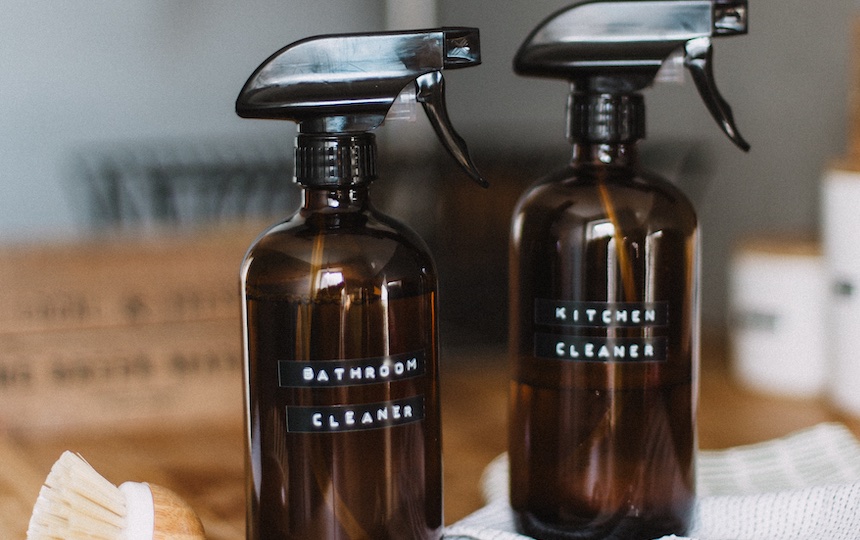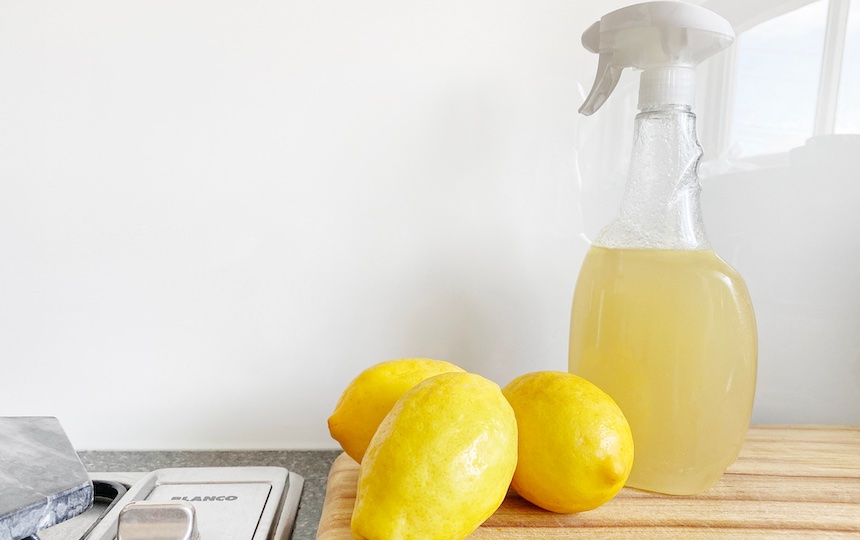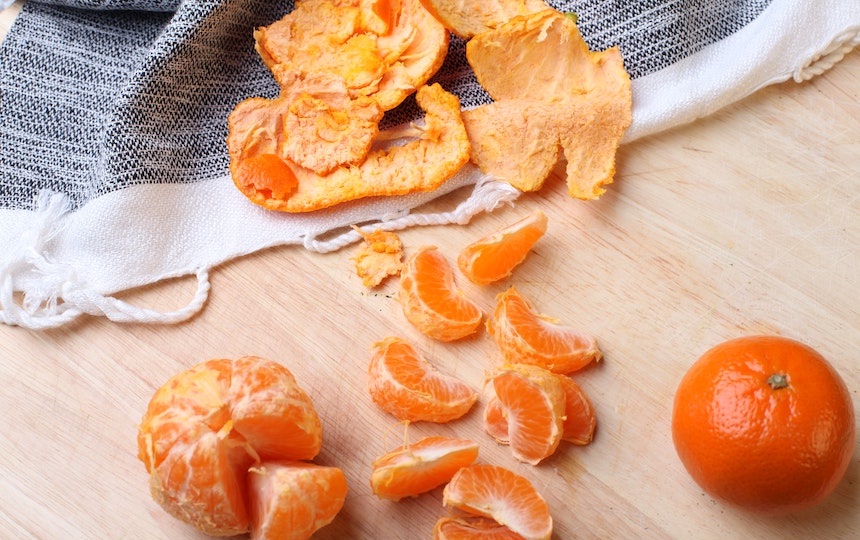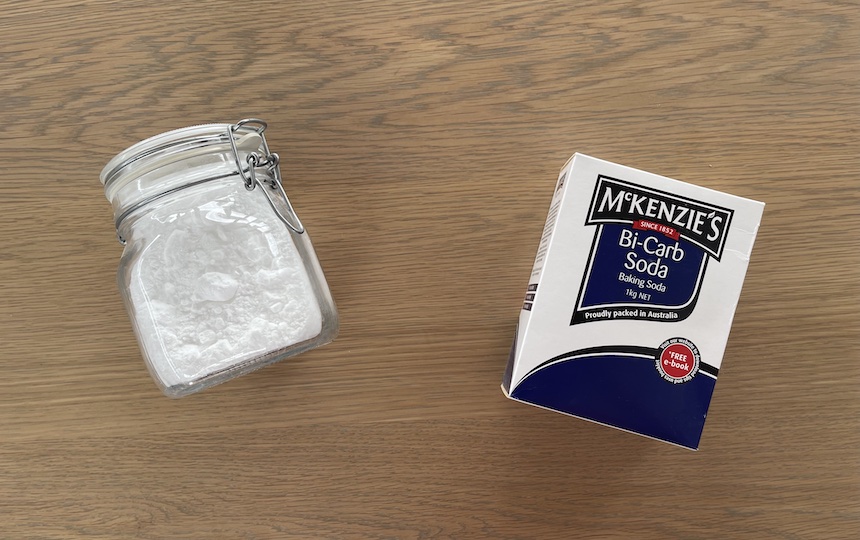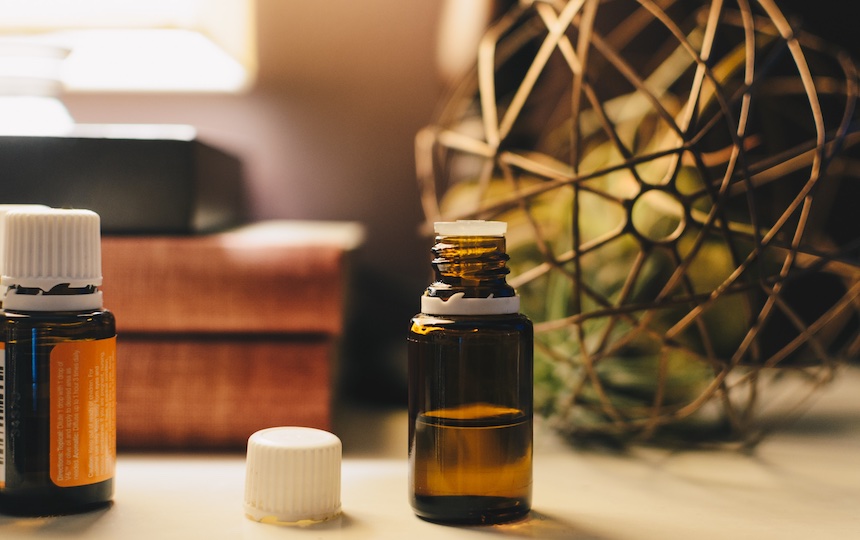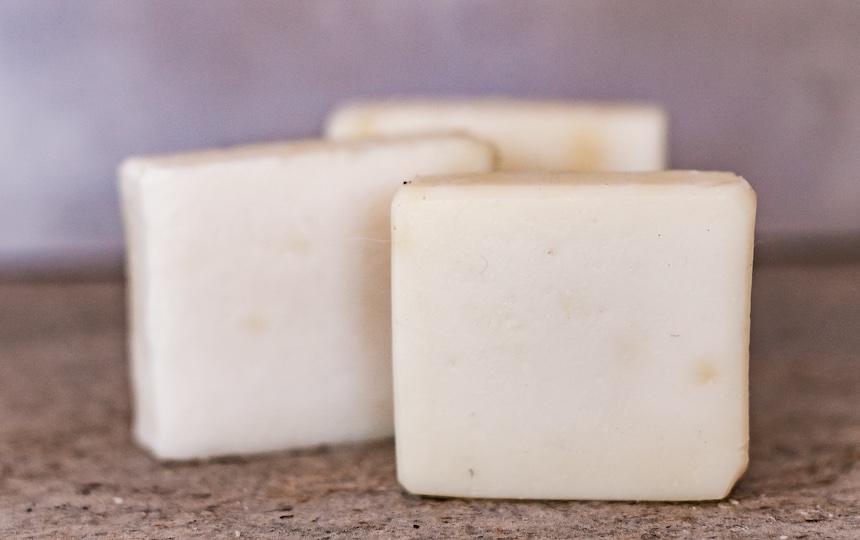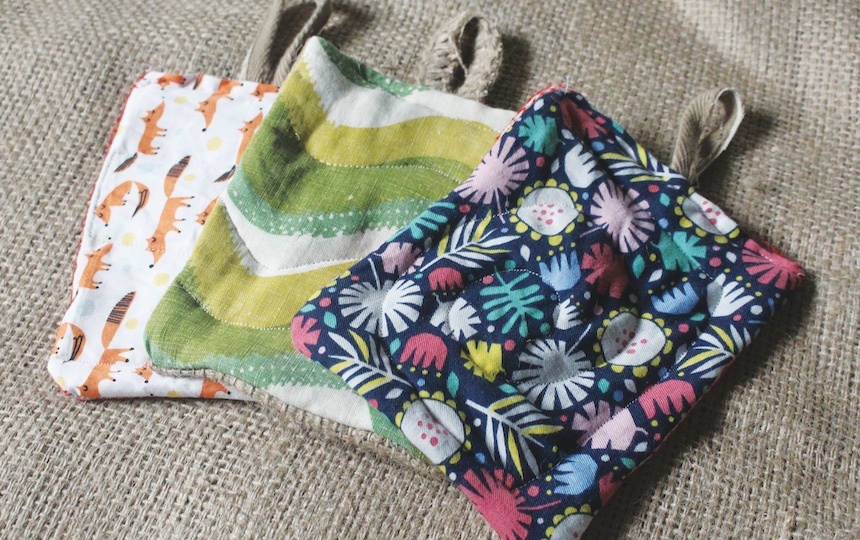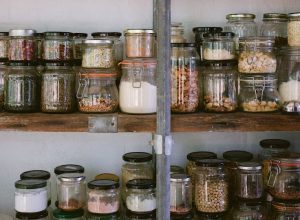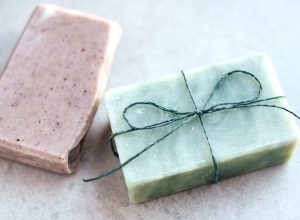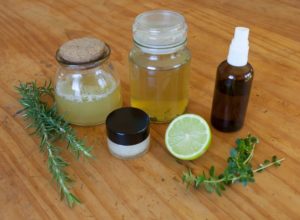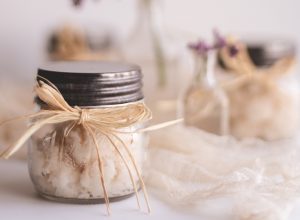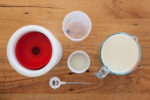Eliminating harsh cleaning chemicals from your home will be better for the planet as well as your health. We reveal the three ingredients you’ll need to make your own homemade cleaning products.
The products you choose to clean your home with says a lot about where you are on your sustainable living journey.
Do you have dozens and dozens of different surface sprays, disinfectants, dishwashing liquid, glass cleaner, wood polish and bleach jammed under your kitchen sink and in your laundry cupboards? Do you use plastic sponges, scourers and scrubbers?
Conventional wisdom says we need each and every one of these common cleaning products to keep our homes “sparkling clean”, especially in this intensively germ-adverse climate.
Unfortunately, while we may want to keep our families safe from so-called “germs”, what we choose to clean our homes with negatively impacts not only the environment but also our own health – the very thing we’re trying to safeguard.
Conventional cleaning agents contain a cocktail of hazardous chemicals like phthalates, triclosan, phosphates and perchloroethylene, many of which are known to pose both short-term health risks, including skin, respiratory or eye irritations, as well as more sinister long-term health effects, such as asthma and endocrine disruption.
They pollute our waterways, and as many of the harsh chemicals in conventional household cleaners are petroleum-based, their use will increase your household’s carbon footprint.
How to start cleaning with natural cleaning products
Thankfully, detoxing your cleaning regime and learning how to make your own homemade cleaning products in actually a simple process.
The first step is of course, ridding your home of all those plastic bottles full of toxic chemicals.
It’s incredibly important that your dispose of your commercial cleaning products correctly, as this will keep them out of our waterways, and will minimise environmental pollution and bushfire hazards.
If you reside in Victoria, you can dispose of these harsh chemicals through Sustainability Victoria’s Detox Your Home program.
Or visit your local council’s website for information on how to correctly discard household hazardous waste, which includes cleaning solvents purchased from supermarkets and hardware stores.
So what to use in place of these products? The list is a short one! And will have you wondering why you spent so much money (and time shopping for) all that bleach in the first place.
Here are the three key ingredients you need to start making your own homemade cleaners.
White vinegar
White vinegar really is a miracle natural cleaner – it has so many different uses, is relatively cheap, and it’s the number one ingredient for homemade cleaning products.
To make your own citrus vinegar homemade all-purpose cleaner, save lime, lemon rind or orange peels in a large glass jar and fill it with white vinegar.
Leave it in the fridge for two weeks and then strain the liquid into a reusable amber glass spray bottle and add a few drops of tea tree oil. Add a few cups of water to dilute if you wish.
You can use this surface spray in every room of the house – whether it’s for the kitchen benches, stovetops, bathroom surfaces, toilet bowl or grill grates (have a couple of separate bottles for both kitchen and bathroom cleaning).
It’s great as a window cleaner and fabric softener (add a cup vinegar to the rinse cycle of your wash), eliminates soap scum, tough stains and cuts through grease, and also works as a drain or oven cleaner when coupled with baking soda.
A word of warning, some inferior brands of white vinegar may be derived from petroleum. Check the label or email the company if you’re unsure whether the vinegar you have chosen is synthetic or not.
Baking soda
Baking soda is an amazing scouring agent. Sprinkle it in the bottom of the shower, in bathroom sinks and anywhere else that needs a good scrub. Then spray some citrus vinegar and let it sit for 20 minutes before scrubbing down the surface. A little elbow grease will be needed!
For any drains that need declogging, pour half a cup baking soda down the plughole, add white vinegar and let it bubble away for half an hour before running the hot water for a couple of minutes. It works just as well as toxic drain cleaners and is infinitely better for the environment and your health.
Tea tree oil
This versatile oil has antimicrobial, antibacterial and antifungal properties, which are perfect for non-toxic home cleaning purposes.
Add a few drops to your homemade citrus all-purpose cleaner, as well to your washing machine to deodorise and freshen up clothes throughout each cycle.
Ensure you purchase tea tree essential oil that comes in a dark glass bottle so that the light does not reduce the oil’s potency.
Buying good quality essential oils is… essential (boom, tish!). Cheaper, inferior, synthetic oils contain little or no actual plant material and offer no health benefits. They can also cause allergic reactions. doTERRA are a good brand to try. Be sure to recycle your empty glass essential oil bottles through Terracycle.
3 more homemade cleaning products to use to clean your home
Olive oil
Olive oil is a terrific alternative to wood furniture polish, says Madeleine Olivia, author of ‘Minimal: How to Simplify Your Life and Live Sustainably’.
“Any standard olive oil will do. Dab some on a dry cloth, polish gently over the surface and leave to dry. You can add lemon juice for a fresh scent.”
Castile soap
“You can use liquid castile soap it for laundry detergent, dish soap, hand soap, floor cleaner or even shampoo,” says Olivia.
“For washing-up liquid, mix four parts of castile soap with one part warm water in a repurposed container. For sparkling floors, add 1/4 cup of vinegar to your bucket of hot water and a generous squeeze of castile soap.”
Zero waste kitchen scrubbers
Produced using plastics and metals, today’s store-bought kitchen scourers can be notoriously bad for the environment. But by repurposing everyday household waste, you can very easily make your own.
In the upcoming issue of Pip Magazine – Issue 23 – we show you how to make your own plastic free kitchen scrubbers. Subscribe here.

